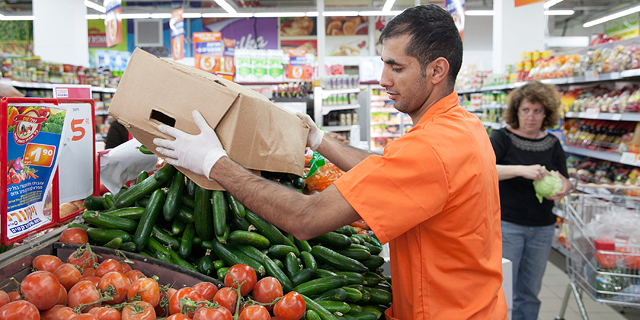
Israel Wanted to Pay Supermarkets to Use More Packaging; They Declined
In August, the government announced it would award $2.6 million to a supermarket chain that commits to selling its produce pre-packaged in plastic. The plan, touted as a way to reduce food waste, was shelved after no supermarket had applied
Meirav Crystal | 11:50, 02.01.20
An Israeli government plan to pay supermarkets to drastically increase their use of plastic packaging was shelved this week after no supermarket chain applied for the grant. In August, Israel's Ministry of Agriculture and Rural Development announced it would award one supermarket chain a NIS 9.5 million (approximately $2.6 million) grant, as part of a pilot program that would see food retailers sell pre-packaged fresh produce.
Most fresh produce in Israel is sold in bulk, allowing consumers to make exact selections and choose their preferred amount of packaging. According to the plan—which the ministry touted as a way to reduce food waste by sealing produce in plastic to protect it from damage—tomatoes, cucumbers, bell peppers, eggplants, zucchinis, apples, pears, bananas, peaches, nectarines, avocados, and mandarins, were to be sold pre-packed in packages available in two sizes.
Back in August, the ministry said the pilot would decrease the amount of wasted produce in shops and at the consumer's home by 10%-15% and 20%-25%, respectively. Data provided by the ministry over the summer showed that between 20% and 52% of fresh produce in Israel is wasted.
Since the plan was first introduced, it was received with negative sentiment from the country's Ministry of Environmental Protection, as well as from consumers, who protested the environmental and financial implications of introducing unnecessary packaging.
Commenting on the failed initiative, the ministry of agriculture said in a statement that the grant amount was not attractive enough and that a new tender will be issued once the government budget is approved for 2020.